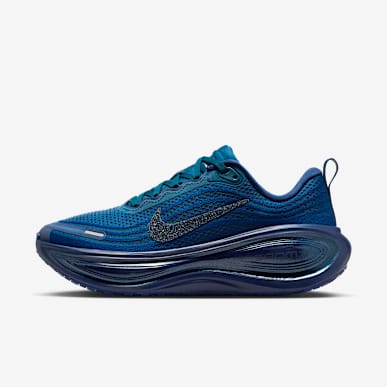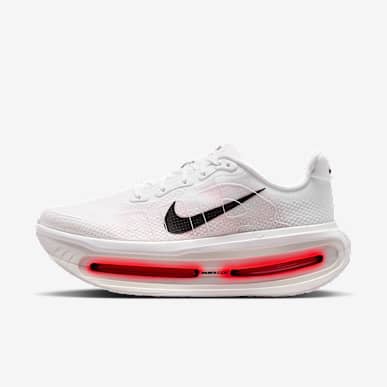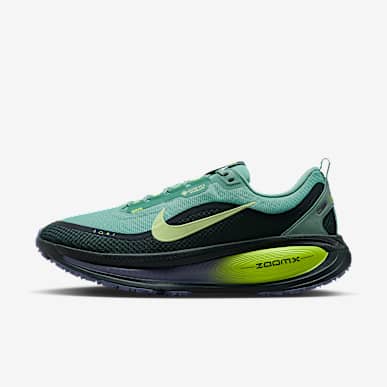Is Running Good for You? Benefits, Risks and How Often to Run
Sports & Activity
Running offers research-backed benefits for your heart, joints and mind and even helps you live longer. Learn how to run safely with expert guidance.

Short answer: yes.
Research consistently shows that running and jogging are good for your health. As a form of aerobic exercise, running supports cardiovascular health, promotes mental well-being, strengthens bones and joints and may even help you live longer. And runners don't need to go far or fast to see the benefits.
A common follow-up question is whether it's good or bad to run every day. Like most things related to fitness and training, the answer depends on factors like training history, intensity, recovery and overall fitness.
At a Glance: Is Running Good for You?
- Promotes heart health and aerobic fitness
- Supports joint health, including the knees
- Positively affects mental health, stress and mood
- Helps improve body composition and metabolic health
- Builds muscle and core strength
- Linked to reduced all-cause mortality and increased longevity
- Accessible and affordable with minimal equipment
Running is also one of the easiest ways to build a consistent movement habit. All you need are supportive shoes and a safe place to run.
What many people don't expect is that running can affect your body and mind for hours or even days after a workout. Here's what research and experts say.
Key takeaways
- Running even once a week is associated with health and longevity benefits.
- Gradual, consistent running can improve bone density and joint health.
- Running benefits your body beyond muscles and lungs, including gut and liver health.
- Regular running or walking is strongly linked to improved mood and reduced stress levels.
- You don't need to run every day to see results.
Health Benefits of Running
1. Running May Help You Live Longer
When it comes to longevity, running may be one of the most effective forms of exercise. A widely cited 2017 study published in Progress in Cardiovascular Diseases found that runners have a significantly reduced risk of premature death and tend to live about three years longer than non-runners.
This benefit is likely attributable to running's effects on multiple chronic disease risk factors, including heart disease, type 2 diabetes and certain cancers. Running as part of a consistent training routine improves cardiovascular health, increases VO₂ max and helps lower resting heart rate.
Importantly, you don't need to run every day. A 2020 meta-analysis in the British Journal of Sports Medicine found that running just once a week was associated with meaningful reductions in all-cause mortality.
"The good news is that you can see health advantages at any age when it comes to improving lifespan through an exercise like running," said Neel Anand, M.D., professor of orthopaedic surgery at Cedars-Sinai. "If you want a way to stay healthy and live longer, start moving."
2. Running Supports Joint Health (Yes, Even Your Knees)
A common concern among beginners is whether running is bad for your knees. Emerging research shows the opposite.
A 2018 study in The Journal of Bone & Joint Surgery found that long-distance runners had a lower prevalence of hip and knee osteoarthritis compared to the general population. A 2020 study in Skeletal Radiology also found improvements in knee cartilage and bone marrow for at least six months after runners completed their first race.
According to Alessio Bricca, Ph.D., of the University of Southern Denmark, gradual mileage upticks are key.
"The belief that exercise like running damages cartilage is based on misinformation," he said. "Exercise done the right way, even for those with knee osteoarthritis, could improve cartilage composition."
Running also helps maintain bone density, which becomes increasingly important with age.
3. Running Can Promote Gut Health
Running doesn't just affect your muscles and heart. It also influences the gut microbiome, which plays a role in digestion, immune function, mood and cardiovascular health.
A 2019 study in Physiological Reports found that endurance running caused measurable changes in gut bacteria during and after exercise. According to Mary Purdy, R.D.N., author of The Microbiome Reset Diet, these shifts can affect multiple body systems.
"What's happening in our microbiome influences nearly every physiological function we have," she said. "Think of it as an ecosystem you can support or diminish depending on how you move."
4. Running Supports Liver and Metabolic Health
Running may help protect against metabolic-associated fatty liver disease, which affects roughly 25% of people worldwide.
In a 2020 study published in Alimentary Pharmacology & Therapeutics, participants completed short cardio sessions lasting about 10 minutes. After 12 weeks, researchers observed significant improvements in liver health markers and aerobic capacity.
These findings reinforce that you don't need a long workout every day to see benefits. Even brief bouts of running or jogging can positively influence metabolic health.
5. Running Can Help Reduce Stress and Burnout
The mental health benefits of running are well-established. Regular aerobic exercise is associated with lower rates of depression and anxiety, improved mood and better stress regulation.
Research published in PeerJ found that cardiovascular exercise, including running, reduced psychological distress and emotional exhaustion in people experiencing workplace burnout. Participants exercised for 30 minutes, three times per week, and saw improvements within three weeks.
If you're feeling mentally foggy or emotionally drained, a few short runs per week may help restore focus and energy.
Common Running Risks (and How to Avoid Them)
Running is beneficial for health, but doing too much too soon can increase the risk of injury, especially if you run every day without adequate recovery or a well-structured training plan.
Common risks include:
- Overuse injuries, such as shin splints, stress fractures and tendinitis
- Joint or tendon irritation
- Fatigue and performance decline from insufficient recovery
How to reduce risk:
- Increase mileage gradually
- Alternate running days with rest or cross-training
- Wear supportive, well-fitting running shoes
- Prioritise sleep and recovery
Listening to your body is especially important if you're new to running.
How to Start Running Safely: A 4- to 6-Week Beginner Plan
If you're wondering whether it's good to run every day, the answer for most beginners is no. Consistency matters more than frequency when you're just getting started.
Weeks 1 to 2
- Run/walk intervals, 20 to 25 minutes
- 3 days per week
Weeks 3 to 4
- Gradually increase running time
- 3 to 4 days per week
Weeks 5 to 6
- Run continuously for 20 to 30 minutes
- Add an optional easy fourth run
Taking time off between run days allows your body to adapt between each workout.
FAQ: Benefits of Running
How much running is healthy per week?
Most research suggests 75 to 150 minutes of moderate-intensity running per week provides significant benefits. Walking and jogging offer lower-impact alternative activities.
Is running every day bad for you?
Not necessarily, but many people benefit from rest days to reduce injury risk and support recovery.
Is running good or bad for your knees?
When progressed gradually, running is generally beneficial for joint health and is not associated with increased rates of knee osteoarthritis or injury.
Is running better than walking?
Both running and walking are beneficial. Running delivers greater aerobic benefits in less time, while walking is lower impact.
Can running help you live longer?
Yes. Studies consistently link running with reduced all-cause mortality and increased longevity.
Don't miss How to Increase Running Mileage Without Getting Injured, According to Experts. Then, download the Nike Run Club App for more expert-backed advice!

























